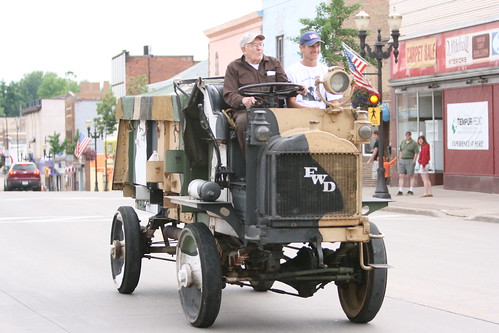I confess that until quite recently, I had no idea what it meant, other than the obvious meaning one can get from context. It wouldn't have taken a lot of brain power to guess correctly. I just never bothered.
Well, turns out it joins "entrenched", "over-the-top","breakthrough" and others I don't know about, as a Great War term that has stuck around.
The balloon in question is, of course, the barrage balloon, the spot where the unlucky artillery observers got to sit, 6000 feet in the air to acquire targets and observe the fall of the shot. Unlucky because, to me being stuck a mile up, tied to a giant bag of hydrogen (Think Hindenburg disaster) while enemy aircraft endeavored to put a tracer though this, oh so easy, target, would be no fun. They were protected by their own screen of fighters and parachutes were provided, attached to the mooring line but still...

What was in use was the kite-balloon. Prior spotting balloons were of the familiar spherical type but they could only operate in winds of less than 20 mph. The kite-balloon was invented by a German in 1894 but by 1914 all combatants used them.The one pictured is French.
"The kite balloon is the ugliest thing that man has ever seen when he looks
up at the sky, but it serves its purpose."
This was written by Sir Walter Raleigh (No, not the one frequently found in cans where he has trouble breathing). This one, author of "The War in the Air, vol. 1".
It's an ingenious idea. The larger part is filled with hydrogen while, in the rear a sausage-shaped appendage hangs - filled with air. This serves as a rudder, always keeping the balloon facing into the wind. Also, it weighted down the aft end as the only point of attachment was at the front. Without the air-rudder to balance things out, the thing would have stood on its nose. Two wings on either side added to the stability.
But how do you suppose they got the damned thing down at the end of the day? The answer is: a winch-truck.
For the Americans, this was accomplished by an interesting conglomeration of products from three different manufacturers.
First of all, it starts with our old pal, the FWD, Model B.
 Add to this a clever after-market offering of the Holt Company, a half-track conversion kit. Better traction and lower ground pressure - important given the fact that the wheels it replaced were cast-iron and solid rubber.
Add to this a clever after-market offering of the Holt Company, a half-track conversion kit. Better traction and lower ground pressure - important given the fact that the wheels it replaced were cast-iron and solid rubber. What would have further hastened the decent of the truck toward the center of the earth was the load it carried.
What would have further hastened the decent of the truck toward the center of the earth was the load it carried.This was the contribution of the McKeen Motor Car Co. who put the whole package together for the Army.
It's interesting that McKeen had this contract when they were known for making neither trucks nor winches. The "Motor Car" in the company title referred to gasoline powered, trolley cars.

The lower photo shows a post-war model with all its shrouding in place. What this shrouding covered was a massive engine, the sole purpose of which was to supply power to the winch, a spool to hold several thousand feet of cable, plus all the necessary gearing. A heavy load indeed to be driving in the mud.










No comments:
Post a Comment